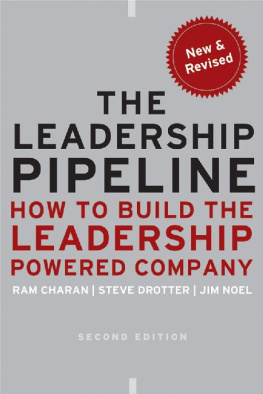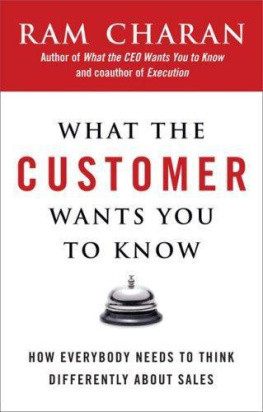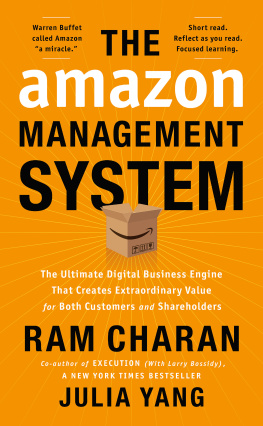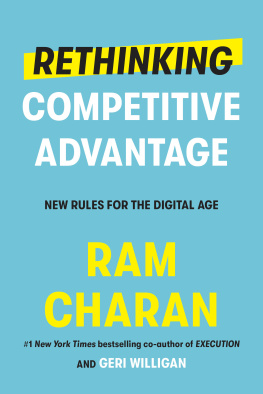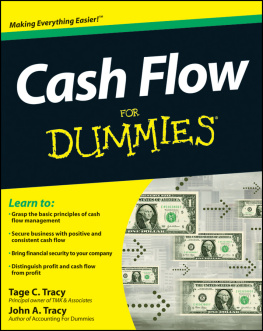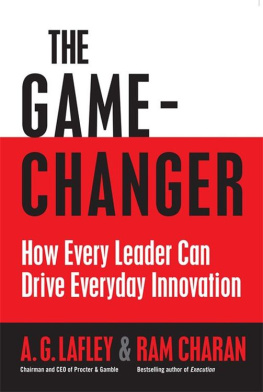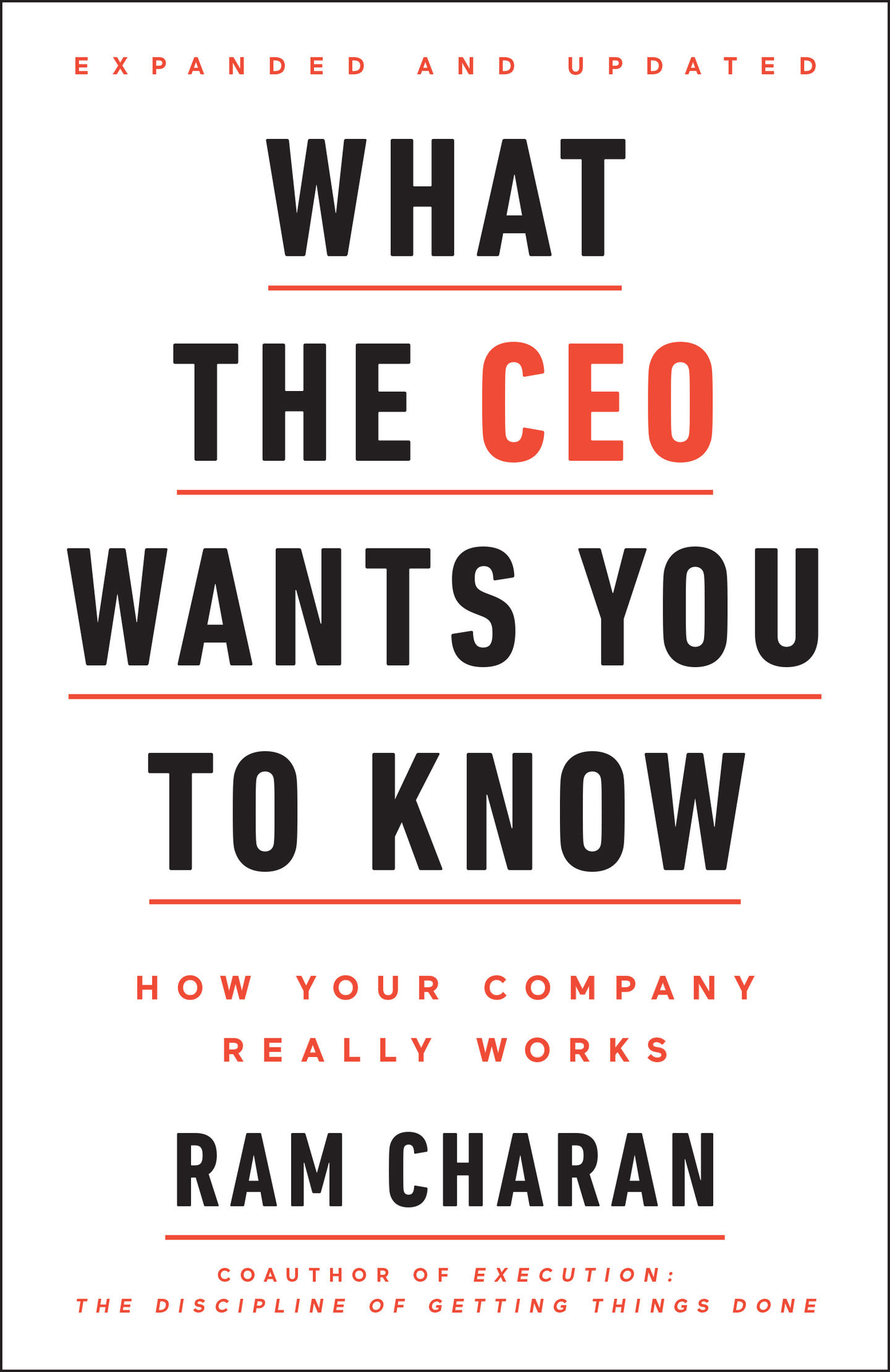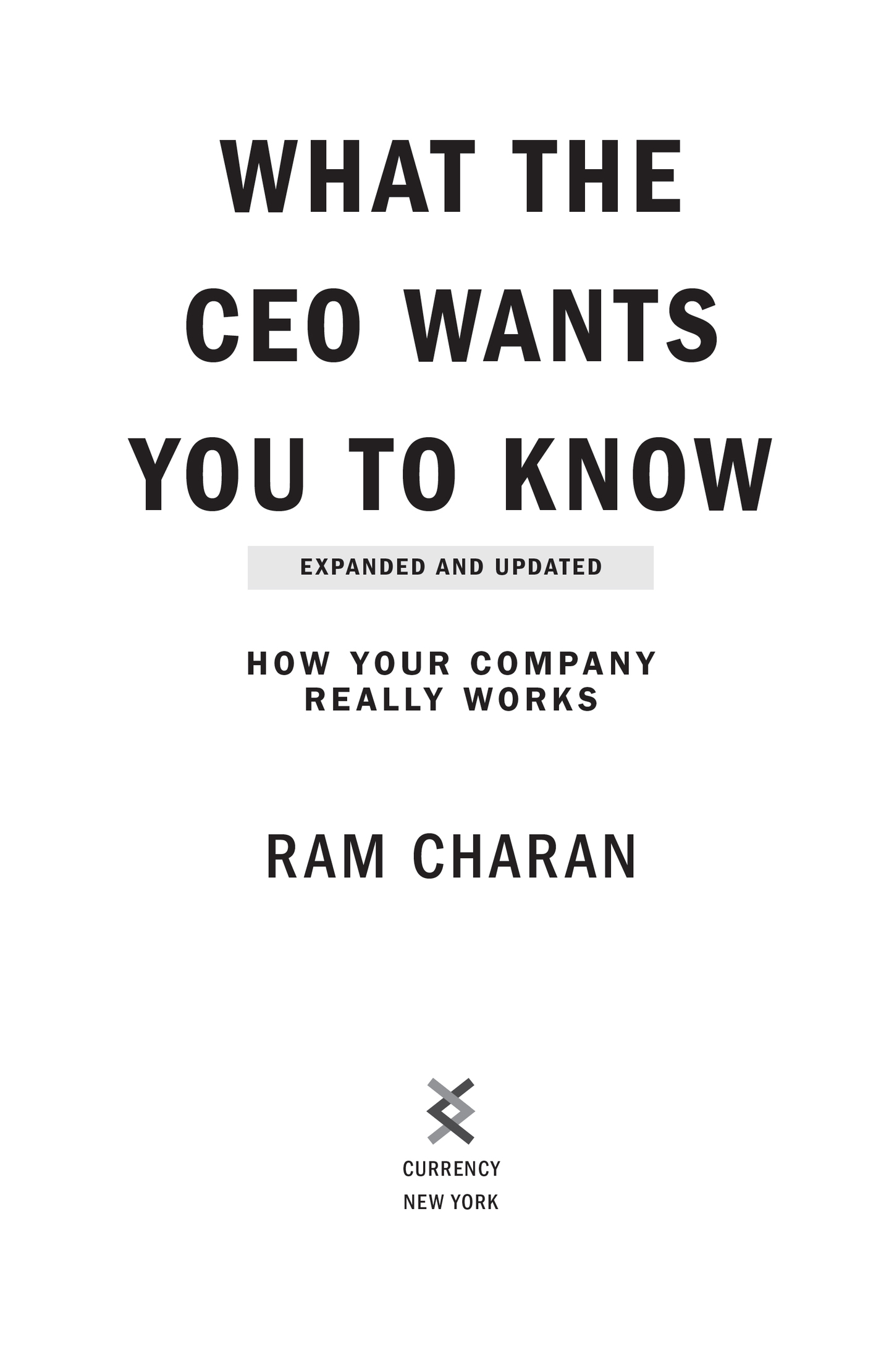Contents
ALSO BY RAM CHARAN
The High Potential Leader: How to Grow Fast, Take on New Responsibility, and Make an Impact
The Attackers Advantage: Turning Uncertainty Into Breakthrough Opportunities
Global Tilt: Leading Your Business Through the Great Economic Power Shift
Leadership in the Era of Economic Uncertainty: The New Rules for Getting Things Done in Difficult Times
Owning Up: The 14 Questions Every Board Member Needs to Ask
Leaders at All Levels: Deepening Your Talent Pool to Solve the Succession Crisis
Know-How: The 8 Skills That Separate People Who Perfrom from Those Who Dont
Boards That Deliver: Advancing Corporate Governance from Compliance to Competitive Advantage
Profitable Growth Is Everyones Business: 10 Tools You Can Use Monday Morning
Boards at Work: How Corporate Boards Create Competitive Advantage
What the Customer Wants You to Know: How Everybody Needs to Think Differently About Sales
Action, Urgency, Excellence (customized book for EDS Corporation)
Business Acumen (customized book for Ford Motor Company)
Solid Line, Dotted Line, Bottom Line (customized book for Gateway)
COAUTHORED BY RAM CHARAN
Execution: The Discipline of Getting Things Done
The Game Changer: How You Can Drive Revenue and Profit Growth with Innovation
The Talent Masters: Why Smart Leaders Put People Before Numbers
Confronting Reality: Doing What Matters to Get Things Right
Boards That Lead: When to Take Charge, When to Partner, and When to Stay Out of the Way
Every Business Is a Growth Business: How Your Company Can Prosper Year After Year
E-Board Strategies: How to Survive and Win
The Leadership Pipeline: How to Build the Leadership Powered Company
Strategic Management: A Casebook in Business Policy and Planning
Copyright 2017 by Ram Charan
All rights reserved.
Published in the United States by Currency, an imprint of the Crown Publishing Group, a division of Penguin Random House LLC, New York.
crownpublishing.com
CURRENCY and its colophon are trademarks of Penguin Random House LLC.
Originally published in significantly different form by Crown Business, an imprint of the Crown Publishing Group, a division of Penguin Random House LLC, in 2001.
Library of Congress Cataloging-in-Publication data is available upon request.
Hardcover ISBN9780553417784
Ebook ISBN9780553417791
International Edition ISBN9780525572688
Cover design by Jake Nicolella
v4.1
a
Dedicated to the hearts and souls of the joint family of twelve siblings and cousins living under one roof for fifty years, whose personal sacrifices made my formal education possible
CONTENTS
PART I
THE UNIVERSAL LANGUAGE OF BUSINESS
1
HOW THIS BOOK CAN HELP YOU
Think back to your school days and the best teacher you ever had. The one who seemed to know everything about his or her subject and had something all the other teachers lacked: the ability to boil down the complex ideas of the disciplinewhether it was psychology, economics, mathematics, or chemistryso that you really got it.
Other teachers may have had a great depth of knowledge, or fancier credentials, but they couldnt turn on the lightbulb over your head. Instead of making something complex seem simple, they did the oppositethey made it harder to understand.
Ive been in the business world for more than fifty years, beginning when I was a child in my familys small shoe store in India, then working as an engineer in Australia. From there, I moved to America, attended Harvard Business School, taught there and at Northwesterns Kellogg School of Management and Boston University, and have been advising CEOs and serving on boards of directors at companies large and small around the world ever since. The one thing Ive noticed in all that time is that the best CEOs are like the best teachers. They are able to take the complexity and mystery out of business by focusing on the moneymaking fundamentals. And they make sure that everyone in the company, not just their executive colleagues, understands those building blocks of business.
You could say that in doing so they have their self-interest at heart, since the company is more successful when everyone knows how the business works. But its not just the CEO who benefits. People feel more connected to their work and have greater job satisfaction when they really understand how their organization works. And as the company grows profitably year after year there are greater opportunities for them to expand their careers and make more money, and the company can make a greater contribution to the community. The same applies to a nonprofit or government agency. (See the box ) Thats why the best CEOs everywhere work so hard to explain things. And thats why I want to share with you, in the words of the books title, what the CEO wants you to know, so that you can learn, grow, and make a greater contribution to not only your organization but the world around you.
This Is Far Easier Than You Think
It turns out that business is very simple and very logical. There are universal principles that apply whether you sell fruit from a stand or run a Fortune 500 company. Every organization must serve its customers, manage its cash effectively, use its assets wisely, and constantly improve and grow.
These are the basics. This is business boiled down to its essentials. And those essentials are present in every company anywhere on the globe, despite differences of cultures, dialects, or government regulations. Its always been this way. Think once more about your school days. Once you understood that the atom was made up of protons, electrons, and neutrons, you had the fundamentals to help you solve any chemistry problem.
WAIT! THIS IS TRUE OF NONPROFITS, NGOS, AND GOVERNMENT AGENCIES, TOO?
Sometimes people are surprised when I say that everyone needs to understand the fundamentals of business. They say they work for a government agency, NGO (nongovernmental organization), or nonprofit (such as a charity or volunteer group), and this discussion cant possibly apply to them.
But it does, although some of the terminology is different.
Lets take just one of the four key essentials of any organizationmanaging cash effectively. True, NGOs and government entities usually dont sell things to generate cash, but still they must make sure they have enough money to operate both today and in the future. For a nonprofit, that money usually comes from donations; government agencies receive funding.
Similarly, just as in for-profit businesses, NGOs and government agencies need to manage their cash well. Otherwise they will cease to exist, in the case of a charity, or be reorganized or shut down, in the case of a government agency.
The takeaway is simple: all of us, no matter what we do for a living, will be better at our jobs if we learn how moneymaking tools are applied within our organizations.
I want to show you that its the same with business. When you know the fundamentals, you get the basics for how



